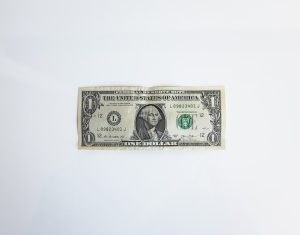The forex market is the largest and most liquid financial market in the world, with a daily trading volume of over $5 trillion. It operates 24 hours a day, five days a week, and involves the exchange of currencies between traders and institutions from all over the globe. The exchange rate of one currency against another is determined by supply and demand, which is affected by various factors, including economic data, political events, and market sentiment. In this article, we will discuss how buying or selling currency affects the forex market.
Buying Currency
When traders or institutions buy a particular currency, they increase the demand for that currency, which leads to an increase in its value relative to other currencies. For example, if a trader buys the Euro against the US dollar, the demand for the Euro increases, and the supply of the US dollar decreases. This causes the Euro to appreciate against the US dollar. The opposite is also true. If a trader sells the Euro against the US dollar, the demand for the Euro decreases, and the supply of the US dollar increases, causing the Euro to depreciate against the US dollar.
The increase in demand for a currency can be due to various reasons, including positive economic data, favorable political events, and market sentiment. For example, if the European Central Bank (ECB) announces an interest rate hike, traders may buy the Euro in anticipation of a stronger economy and higher returns. Similarly, if a political event, such as an election, results in a pro-business government coming to power, traders may buy the currency of that country, expecting a boost in economic growth and investor confidence.
Selling Currency
Selling currency has the opposite effect of buying currency. When traders or institutions sell a particular currency, they increase the supply of that currency, which leads to a decrease in its value relative to other currencies. For example, if a trader sells the US dollar against the Euro, the supply of the US dollar increases, and the demand for the Euro decreases, causing the Euro to appreciate against the US dollar.
The decrease in demand for a currency can be due to various reasons, including negative economic data, unfavorable political events, and market sentiment. For example, if a country experiences a recession, traders may sell its currency in anticipation of weaker economic growth and lower returns. Similarly, if a political event, such as a coup or a civil war, creates uncertainty and instability, traders may sell the currency of that country, expecting a decline in investor confidence and a flight to safety.
Impact on the Forex Market
The buying or selling of currency can have a significant impact on the forex market, as it affects the exchange rate of one currency against another. When there is a high demand for a particular currency, its value increases, and the value of other currencies decreases. This can lead to a shift in capital flows, as investors seek higher returns in the currency that is appreciating.
For example, if the US dollar is appreciating against the Euro, investors may shift their capital from Euro-denominated assets to US dollar-denominated assets, such as US stocks, bonds, and real estate. This can lead to a decline in the value of Euro-denominated assets, such as European stocks and bonds, and a rise in the value of US dollar-denominated assets. Similarly, if the Euro is appreciating against the US dollar, investors may shift their capital from US dollar-denominated assets to Euro-denominated assets, leading to a shift in capital flows.
The buying or selling of currency can also affect the balance of trade between countries. When a country’s currency appreciates, its exports become more expensive, and its imports become cheaper. This can lead to a decline in exports and an increase in imports, which can negatively affect the country’s trade balance. Conversely, when a country’s currency depreciates, its exports become cheaper, and its imports become more expensive. This can lead to an increase in exports and a decline in imports, which can positively affect the country’s trade balance.
Conclusion
In conclusion, buying or selling currency affects the forex market by influencing the exchange rate of one currency against another. When traders or institutions buy a currency, its value increases, and when they sell it, its value decreases. This affects the balance of trade between countries and can lead to a shift in capital flows. Therefore, it is essential for traders and investors to understand the factors that influence the buying or selling of currency and how it can affect the forex market.






